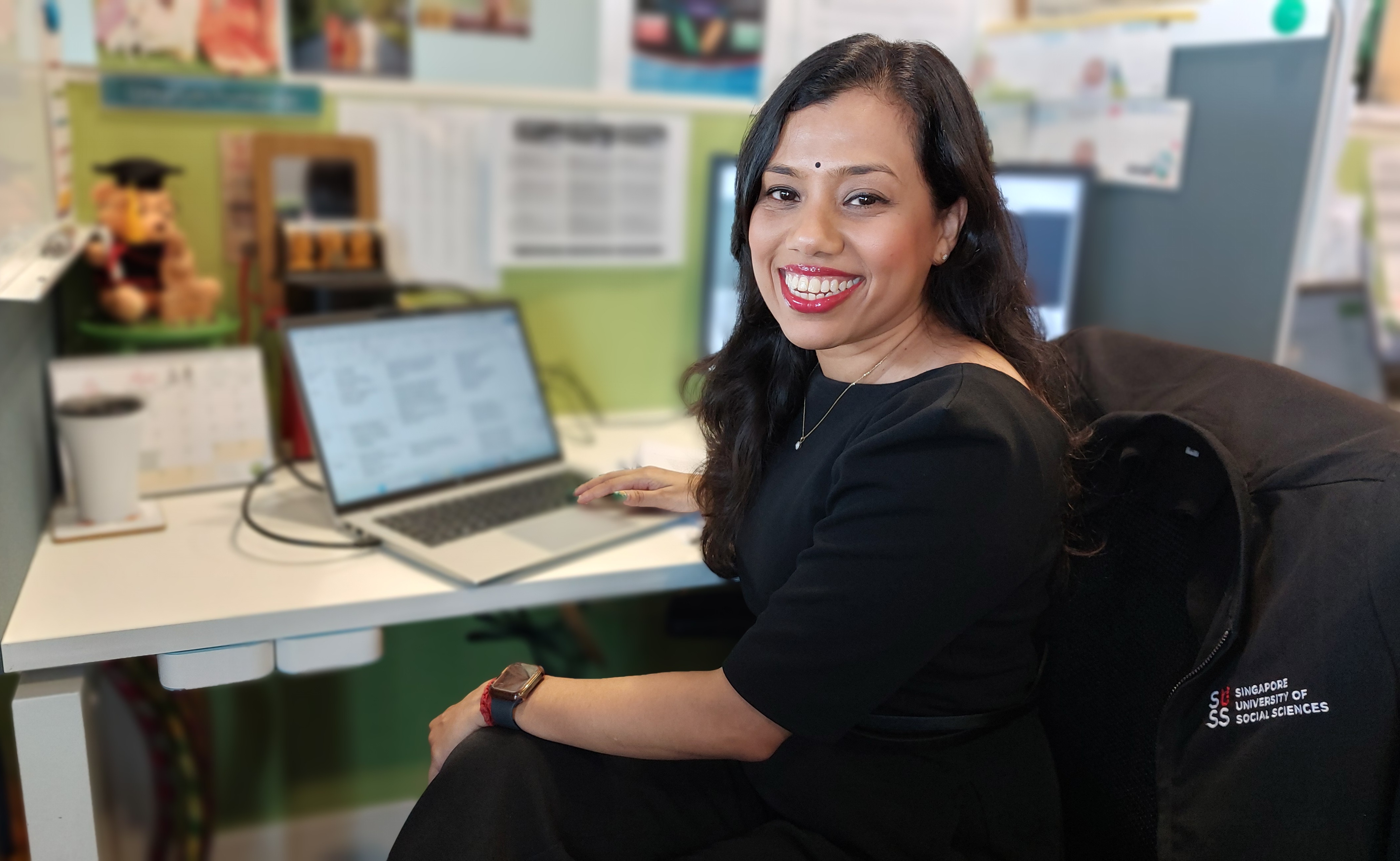
Event
Designing Impactful, Relevant Learning
Designing Impactful, Relevant Learning
Description
Designing curriculum for adults is a specialised field that requires insights on how adults learn and relevant methodologies to impart and support their learning. Ms Uma Letchumanan, Curriculum Development Specialist with IAL’s Learning and Professional Development Division (LPDD), gives us behind-the-scene peeks into her exciting and impactful work..In a nutshell, how would you describe what you do?
I would like to see myself as a “Learning Architectural Engineer” or an “Adult Learning Scientist”! Like an architectural engineer who needs to merge theory and practice to construct high performance structures, my job entails applying adult learning pedagogy to real life practice, and engineer learning experiences that cater for evolving industry needs.
On the other hand, mirroring the precision of a scientist, I employ a meticulous and methodical approach in my work. My process begins with a comprehensive training needs assessment, incorporating in-depth industry and trend analyses. This informs the strategic development of targeted training programmes. Following programme implementation, I conduct a rigorous evaluation to ensure maximum effectiveness and continuous improvement.
That is definitely a lot of specialised knowledge and work!
Definitely! As a team, LPDD ensures the quality of our offerings through work such as pre-qualifying the teaching methods of non-IAL intellectual property programmes. Depending on the project, I would also have to work with colleagues across divisions or even industry partners. This collaborative approach allows us to leverage diverse expertise and create impactful learning experiences.
What does your typical workday look like?
Anything but monotonous! Right now, I am creating two new courses slated to be launched in the third quarter of 2024. I have completed training needs analysis and industry scans previously, so I am at the stage of designing the programme structure. I would have to brainstorm content, determine course length, and visualise the overall learning experience.
My daily regimen is a blend of discipline and creativity — starting with a swift dispatch of morning emails, followed by a visual brainstorming session to help me crystalise ideas for the courses under development. The rest of the day is dedicated to curriculum development. Research, as well as analysing and sense-making of data gleaned from my readings and conversations are vital; they help me to anchor the curriculum in the present and anticipate future industry trends.
What do you love about your work?
Many things. It is exciting that I get to work with a great diversity of content, from organisational development to andragogical practices and programmes for public safety. Right now, I am crafting materials to equip adult educators with teaching approaches incorporating generative AI.
What truly excites me is the opportunity to propose curriculum based on my interest!
What would you say make an effective curriculum?
There are several key ingredients. Firstly, the content must be relevant to the target learners’ needs. This means conducting thorough learning needs analysis to understand the specific knowledge gaps and skills sets needed. Secondly, a good curriculum must incorporate engaging delivery methods such as interactive activities and authentic case studies. Thirdly, effective curriculum development leverages established adult learning principles, such that the learning experiences would resonate with adult learners. Lastly, a good curriculum is a living document. Evaluation strategies allow us to assess the programme’s effectiveness and continuously refine and improve the curriculum.
Where would you say your strongest interest lies in?
One area I am particularly passionate about is the intersection of instructional design, pedagogical practices, and the transformative power of educational technology and generative AI. I am now exploring ways to leverage these advancements to reinvent learning experiences for the modern adult learner.
At the end of the day, it is an incredibly rewarding process to see a curriculum idea come to life, knowing it will empower learners on their professional journeys.
What would you say to someone keen to become a curriculum developer?
I think anyone looking to join this field needs a unique blend of skills. Technical knowledge including a strong foundation in adult learning principles and expertise in instructional design principles is essential for the programmes to be impactful and resonate with learners.
To respond to evolving industry trends, a good curriculum developer also needs to be agile and adaptable. You should also be able to collaborate and communicate well, since curriculum development is always a team effort. Be forward-thinking, curious, and open-minded. Finally, be ready to push boundaries and have a passion to innovate!
